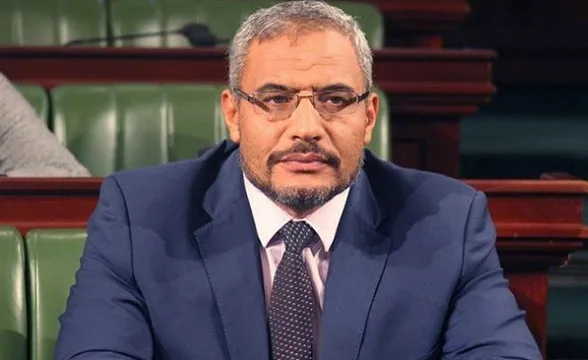Tunis, June 20, 2025 – On Thursday evening, June 19, the Criminal Chamber of the Court of First Instance of Ariana issued a 15-year prison sentence against Ennahdha Movement leading member Sahbi Atig. The sentence was issued on charges related to “forming an alliance with the intent to launder money,” “exploiting one’s professional and social status,” “illegally holding foreign currency,” and “giving false testimony.” Two other defendants were also sentenced to the same prison terms, while a former governor was sentenced to two years in prison.
Case Background:
The case dates back to 2017, when investigations began following a testimony filed by one of the defendants in another case, in which Sahbi Atig was accused of leading a money laundering network through Libyan intermediaries. The defense team categorically denied the existence of any material evidence to support these allegations, claiming that the case lacks documentation and accounting data that could prove the facts. The case remained open for years without progress, before being reactivated as part of a systematic political score-settling after July 25, 2021, amidst a climate of continued repression against opposition figures and unionists.
The Tunisian Freedom Observatory believes that this case bears all the hallmarks of political manipulation, especially in the absence of serious evidence and investigation reports based on concrete facts. The resort to grave charges such as “money laundering” and “forming an alliance” against a prominent figure in the political opposition is a part of the pattern of persecuting opposition leaders in the absence of the most basic conditions for a fair trial. The Observatory recalls that Sahbi Atig has been in detention for over two years, with delays in considering his requests for provisional release, in clear violation of international standards.
The Tunisian Freedom Observatory demands:
- The immediate release of Sahbi Atig and all defendants in this politically-motivated case;
- Open an independent investigation into the background to the case and its reactivation after years of stagnation;
- Respect international standards for fair trials and the presumption of innocence;
- End the use of the judiciary to eliminate political opponents and intimidate dissenting voices;
- Ensure the independence of judges and lift any political or security pressures that may be exerted on them.





